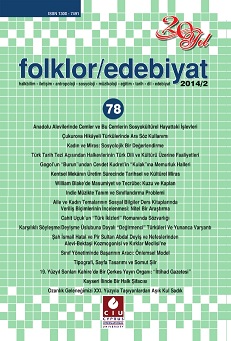Sınıf Yönetiminde Başarının Aracı: Önlemsel Model
The Tool of Success in Classroom Management: Precautionary Model
Author(s): Aynur BilirSubject(s): School education, Management and complex organizations, Sociology of Education
Published by: Uluslararası Kıbrıs Üniversitesi
Keywords: Classroom Management; Teacher; Student; Precautionary Model;
Summary/Abstract: The aim of school is to train each child as a helpful individual to himself/herself, his/her family, society, humanity enabling to grow in his/her learning power and current capabilities. A teacher’s success in training students undoubtedly depends on his/her being well-trained and his/her success in classroom management as well. Teachers are aware of how the facts related to the instruction period affect classroom management. According to teachers’ management understanding, to the lesson, to the subject, to the aims, to the students and to the learning environment, different classroom management models can be chosen and applied. These are reactional, precautional, developmental and holistic models. Every model has its own advantages and disadvantages according to contemporary modern education of view. As one of these models, precautionary model, takes classroom activities as a socialization process. In classroom, there is a need for some tools such as preventing unwanted situations before they come up, planning future and describing rules. However it is not adequate for teacher to manage classroom within the boundaries of this model. In order to achieve effective teaching and learning activities, a teacher must take some precautions. The application of these precautions requires collaboration of teachers, the school administration, guidance service, parents, related institutions and organizations around. The aim of this article is to introduce means of the precautionary model and to define some examples of application with these means that the teacher may use in predicting the undesirable behaviors which may occur during the instruction in class and in minimizing these undesirable behaviors.
Journal: Folklor/Edebiyat
- Issue Year: 20/2014
- Issue No: 78
- Page Range: 203-214
- Page Count: 12
- Language: Turkish

